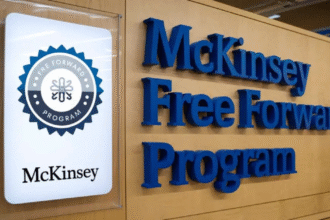Are you struggling to keep up with the constant influx of new software programs? Do you find yourself lost when trying to learn a new tool that promises to make your life easier? If you’ve ever wondered how to learn software efficiently and quickly, you’re not alone. In today’s fast-paced digital world, mastering new software is essential for professional growth and personal productivity. This article will provide you with proven strategies, tips, and resources that will help you learn new software programs like a pro.
Why Learning New Software is Important
Learning new software programs can significantly enhance your skills and open up new opportunities. Here’s why it’s crucial to stay updated:
- Career Advancement: Many employers look for candidates who are adaptable and tech-savvy. Mastering new software can make you more competitive in the job market.
- Increased Productivity: Familiarity with various software tools can streamline your work processes, saving time and effort.
- Enhanced Problem-Solving Skills: Learning new software helps improve your ability to think critically and solve problems in innovative ways.
With these benefits in mind, let’s dive into effective strategies for learning new software quickly and efficiently.
Understanding the Learning Process
Learning a new software program can be broken down into several stages:
- Familiarization: Get to know the interface and basic features.
- Practice: Use the software in real-world scenarios.
- Mastery: Achieve proficiency by using advanced features and shortcuts.
- Application: Implement what you’ve learned in your work or personal projects.
1. Familiarization
The first step is to familiarize yourself with the software. Here’s how to do it:
- Explore the Interface: Spend some time clicking through the various menus and options. Take notes on what each function does.
- Read the Documentation: Most software comes with user manuals or online documentation. Reading these can provide valuable insights into the software’s capabilities.
- Watch Introductory Videos: YouTube and the software’s official website often have introductory videos that can give you a visual understanding of the program.
2. Practice
Once you have a basic understanding, it’s time to practice. Here are some effective methods:
- Hands-On Projects: Create small projects that require you to use the software. This could be anything from designing a simple graphic in Photoshop to creating a spreadsheet in Excel.
- Follow Along with Tutorials: Look for tutorials that guide you step-by-step through specific tasks. This hands-on approach reinforces your learning.
- Use Templates: Many software programs provide templates that can help you get started. Modify these templates to understand how different features work.
3. Mastery
To master the software, you need to go beyond the basics. Here are some tips to help you achieve software mastery:
- Learn Shortcuts: Keyboard shortcuts can drastically improve your efficiency. Spend some time learning these shortcuts and incorporate them into your workflow.
- Join Online Communities: Websites like Reddit or specialized forums can provide valuable tips and tricks from experienced users.
- Take Advanced Courses: Many platforms offer advanced courses that dive deeper into the software’s features. Websites like Coursera, Udemy, and LinkedIn Learning can be excellent resources.
4. Application
The final step is applying what you’ve learned. Here’s how to put your knowledge to practical use:
- Implement in Real-World Projects: The best way to solidify your understanding is to use the software in your actual work or personal projects.
- Share Your Knowledge: Teaching others can reinforce your own learning. Consider writing tutorials or creating videos to help others learn.
- Seek Feedback: Ask colleagues or friends for feedback on your work. Constructive criticism can help you identify areas for improvement.
Tips for Learning New Software Quickly
To learn new software efficiently, consider these tips:
- Set Clear Goals: Before you start, define what you want to achieve. Having clear objectives can keep you motivated and focused.
- Allocate Regular Time: Consistency is key. Dedicate a specific amount of time each day or week to practice the software.
- Stay Curious: Always be willing to explore and learn more. Don’t hesitate to experiment with features you are not familiar with.
- Use Cheat Sheets: Create or find cheat sheets that summarize key functions and shortcuts. This can be a handy reference as you learn.
Learning Resources
Below is a table of recommended resources to help you learn new software quickly:
| Resource Type | Name | Description |
|---|---|---|
| Online Courses | Coursera, Udemy | Offers various courses on software mastery. |
| Tutorials | YouTube | Visual learning through video tutorials. |
| Forums | Reddit, Stack Overflow | Engage with communities for tips and solutions. |
| Documentation | Software Official Sites | Comprehensive guides and manuals for each program. |
| Books | Amazon | Find books specific to the software for in-depth learning. |
FAQs About Learning New Software
How long does it take to learn new software?
The time it takes to learn new software varies depending on the complexity of the program and your prior experience. Generally, with consistent practice, you can become proficient within a few weeks to a couple of months.
Can I learn software on my own?
Absolutely! Many successful software users are self-taught. Utilize online resources, tutorials, and practice regularly to enhance your skills.
What if I get stuck while learning?
Don’t hesitate to reach out to online communities or forums for help. Many experienced users are willing to share their knowledge and assist beginners.
Should I focus on one software at a time?
While focusing on one software can lead to deeper mastery, exploring multiple programs simultaneously can broaden your skill set and increase adaptability.
Conclusion
Learning new software programs doesn’t have to be a daunting task. By following the strategies outlined in this article, you can learn how to learn software efficiently and quickly, setting yourself up for success in your personal and professional life. Remember to stay consistent, practice regularly, and never stop exploring.
Thank you for reading! If you found this article helpful, don’t forget to join CourseBhai for more insights and updates. Follow us on social media and subscribe to our push notifications and newsletters to stay informed about the latest in courses, jobs, and internships











